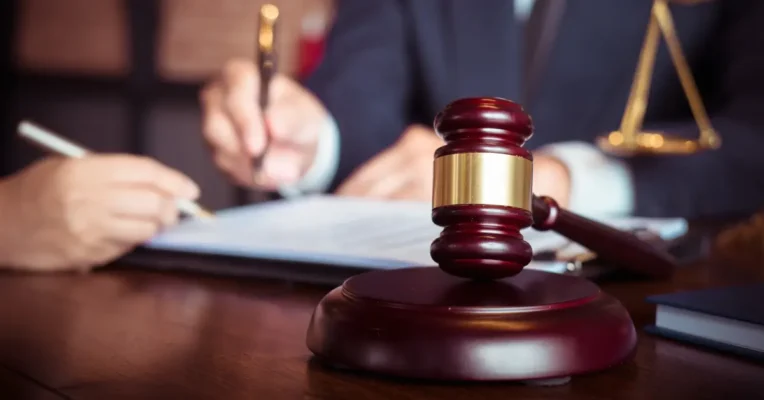Probate is a legal process that oversees the distribution of a deceased person’s assets, ensuring that debts are paid and remaining assets are allocated according to their will or state law if no will exists. Understanding probate law is crucial for families as it affects how an estate is handled after a loved one’s death. This process involves validating the deceased’s will, appraising property, settling debts, and distributing the estate to rightful heirs. Knowledge of how probate works can significantly impact family estate planning, helping to avoid misunderstandings and disputes among heirs.
How Probate Works
Filing the Will in Probate Court
Once a person passes away, the first step in the probate process is to file their will with the local probate court. This filing is crucial as it officially starts the estate administration process under court supervision. The court first verifies the will’s authenticity, ensuring it was created without coercion and meets state legal standards. This step sets the foundation for all subsequent probate activities, and without it, managing the deceased’s estate can become significantly more complicated and contentious.
Appointing an Executor or Administrator
After the will is filed, the court appoints an executor or administrator to handle the deceased’s estate. Suppose the will specifies someone; that individual will serve as the executor. If there is no will or the named executor cannot serve, the court appoints an administrator. This role is pivotal as it involves overseeing the day-to-day responsibilities of settling the estate, including collecting and managing the deceased’s assets, paying off debts, and preparing for asset distribution to the beneficiaries.

Inventorying Assets and Identifying Debts
The executor’s next task is to inventory the deceased’s assets and identify any debts. This involves creating a detailed list of everything the deceased owned at the time of death, such as real estate, bank accounts, stocks, and personal belongings. Alongside asset collection, identifying all debts is essential to ensure creditors are paid before the estate is distributed to the heirs.
Distributing Assets to Beneficiaries
Once all debts and taxes are settled, the executor can distribute the remaining assets to the beneficiaries as outlined in the will. This stage of the probate process involves transferring ownership of properties, disbursing funds, and ensuring that all specific bequests made in the will are honored. If there is no will, the assets are distributed according to state intestacy laws, which generally prioritize spouses, children, and other close relatives. This final step closes the probate case once the court approves the distributions and all necessary paperwork is completed.
Probate Court Process Explained
Resolving Disputes Among Heirs
Disputes among heirs can be one of the most challenging aspects of settling an estate. The role of the probate court here is to mediate and provide decisions that align with the legal interpretations of the will and state laws. The executor must handle these disputes delicately and fairly, often under the guidance of a probate lawyer, to ensure that all parties’ rights are respected and the estate is distributed without bias.
Obtaining Court Approval
Before the estate can be closed and the assets distributed, the executor must obtain court approval. This final approval process involves submitting a detailed report of the estate’s accounts, proving that all debts and taxes have been paid and all assets are accounted for. Once the court reviews and approves these final submissions, the executor can distribute the assets, and the probate court will formally close the estate.
Key Distinctions: Probate vs. Non-Probate Assets
Types of Non-Probate Assets
Non-probate assets play a crucial role in efficient estate planning by allowing certain properties to bypass probate court. These assets are typically transferred directly to designated beneficiaries or co-owners, ensuring a smooth transition during an otherwise challenging time. Below are various non-probate assets and how they can help simplify estate management:
- Jointly Owned Property: Property held in joint tenancy with the right of survivorship automatically passes to the surviving owner(s) upon the death of one owner. This arrangement is common with real estate, vehicles, and bank accounts. Because the surviving co-owner assumes full ownership, the property avoids the probate process entirely. This type of ownership is particularly advantageous in ensuring immediate transfer of assets and reducing delays. However, it’s crucial to confirm that the ownership arrangement explicitly states “with right of survivorship” to ensure the probate bypass applies.
- Retirement Accounts: Retirement accounts, such as IRAs and 401(k)s, are typically equipped with beneficiary designations. These accounts transfer directly to the named beneficiaries, bypassing probate entirely. To optimize this advantage, account holders should review and update beneficiary information periodically, especially after major life changes like marriage, divorce, or the birth of a child. Retirement accounts also offer tax advantages for beneficiaries, which further solidifies their importance in estate planning. Ensuring these accounts have accurate and up-to-date designations is crucial for smooth and direct transfers.
- Life Insurance Policies: Life insurance proceeds are among the most straightforward non-probate assets. They are paid directly to the beneficiaries listed in the policy, regardless of the terms of the deceased’s will. This direct transfer ensures that loved ones receive financial support promptly, often when needed. Beneficiaries should ensure they know their designation and understand the policy’s terms. This asset type is particularly helpful in covering immediate expenses like funeral costs or debts.
- Payable-on-Death (POD) and Transfer-on-Death (TOD) Accounts: Financial accounts and securities with POD or TOD designations allow the account holder to name a beneficiary who will inherit the funds or investments directly upon death. These designations are simple to set up through the financial institution and can significantly reduce the administrative burden for heirs. Beneficiaries must provide proof of death to the institution to claim the assets, but the process is typically straightforward. Ensuring these designations are current and accurate is essential for avoiding disputes or delays in the transfer process.
- Living Trusts: Assets placed in a living trust bypass probate entirely, as the trust technically holds legal title to the property. The trust’s terms dictate how and when assets are distributed to beneficiaries. Living trusts are highly versatile tools for managing various assets, from real estate to bank accounts. Trusts can also help manage assets if the grantor becomes incapacitated, providing an added layer of security.
Reviewing and updating beneficiary designations, ownership structures, and trust terms regularly ensures that these assets are transferred seamlessly. Proper planning can provide peace of mind, knowing that loved ones will receive their inheritance without unnecessary legal hurdles.

Advantages of Non-Probate Transfers
These transfers can be executed swiftly as they are not subject to the probate court timeline, which can sometimes extend for months or even years. They also reduce or eliminate the legal and court fees associated with probate. Furthermore, non-probate transfers are not public records, providing an additional layer of privacy to the financial affairs of the deceased and their beneficiaries.
The Role of Estate Planning in Minimizing Probate
Creating a Clear and Legally Binding Will
A well-drafted will provides concise instructions on how an individual’s estate should be handled after their death, avoiding probate complications and preventing disputes among potential heirs. Here’s how you can ensure your will is both clear and legally enforceable:
- Use Precise Language: Clarity is the cornerstone of any effective will. By explicitly naming beneficiaries and detailing what each individual will inherit, you eliminate room for misinterpretation or contention. Avoid vague terms or generalities that might lead to disputes or delays in probate law for family estates. For example, specify exact amounts for monetary gifts and provide clear descriptions of physical assets, such as “the property located at 123 Elm Street” instead of just “my house.” Including backup beneficiaries for each bequest is also wise in case the primary recipient predeceases you. Clear language ensures that your intentions are honored without unnecessary complications.
- Appoint a Reliable Executor: Selecting a trustworthy executor is critical, as this individual will be responsible for managing your estate and ensuring your wishes are carried out. Choose someone who is organized, reliable, and capable of handling financial and legal matters. It’s also important to have a candid conversation with your chosen executor to confirm their willingness and understanding of the role. Naming an alternate executor can provide a safety net if your first choice cannot serve. A reliable executor minimizes the risk of delays or mismanagement, providing peace of mind for your loved ones.
- Sign in the Presence of Witnesses: To be legally enforceable, most jurisdictions require that a will be signed in the presence of at least two adult witnesses who are not beneficiaries. This step ensures the document’s authenticity and helps protect it from claims of undue influence or fraud. Witnesses must observe the signing process and be of sound mind, fully understanding the significance of their role. Some states have additional requirements, such as notarization, so it’s essential to familiarize yourself with local laws. Ensuring proper witnessing solidifies the legality of your will and protects it from challenges in court.
- Seek Legal Advice: While DIY will kits and templates are popular, consulting an estate planning attorney can ensure your document complies with state-specific laws and addresses complex situations, such as blended families or tax implications. An attorney can also help identify any oversights, such as assets that should be included or unclear provisions that could cause disputes. Legal guidance is particularly important for individuals with substantial estates, unique assets, or businesses. Investing in professional advice ensures that your will is comprehensive and enforceable, offering long-term peace of mind.
- Regular Updates: Life changes, such as marriage, divorce, the birth of a child, or a significant increase in assets, often require updates to your will. Reviewing your document ensures it remains aligned with your current circumstances and intentions. Neglecting to update a will can lead to unintended consequences, such as excluding new family members or failing to account for newly acquired assets. Set a schedule to revisit your will every few years or after any major life event to ensure its accuracy. Keeping it up-to-date guarantees your estate plan reflects your most current wishes.
By addressing these key areas, you can create a will that effectively communicates your intentions, minimizes confusion, and ensures a smooth transition of assets. A clear and legally binding will is a vital part of any estate plan, offering clarity and security for you and your loved ones.
Organizing Financial Records for Your Heirs
Documenting your financial records is an essential step in estate planning and probate that can significantly aid your heirs. By maintaining updated records of all assets, debts, and associated legal documents, you provide a clear roadmap for executors and beneficiaries. The organization not only streamlines the probate process but also minimizes the risk of oversight and financial loss during asset distribution.
Probate Law for Executors
Notifying Creditors and Beneficiaries
One of an executor’s primary responsibilities is to notify all potential creditors and beneficiaries of the death. This involves placing ads in local newspapers and contacting known creditors directly to inform them of the decedent’s passing. This is crucial as it sets the legal timeline for creditors to file claims against the estate, ensuring that all debts are settled according to law before the assets are distributed to the heirs.
Managing Complex Assets and Debts
Managing the estate’s assets and debts can be particularly challenging, especially if the estate includes complex investments, business interests, or substantial debt. Executors must assess the value of these assets, decide whether to sell assets to cover debts and manage the timing of such sales to maximize estate value while fulfilling financial obligations. This often requires the executor to work closely with financial advisors, accountants, and probate lawyers to navigate the intricacies of estate management.
Probate Law Checklist for Executors
This checklist typically includes obtaining multiple copies of the death certificate, securing the estate’s assets, preparing an inventory of the estate, paying ongoing expenses, and eventually distributing assets. Utilizing such a checklist ensures that executors cover all legal bases, comply with probate for families, and efficiently manage their duties without oversight.
When to Hire a Probate Lawyer
Handling Contested or Complex Estates
When the estate is large, complex, or likely to be contested, it is prudent for the executor to hire a probate lawyer. Legal expertise is invaluable in cases where there are disputes over the will’s validity, disagreements among heirs, or claims made by creditors that could impact the estate’s assets.

Understanding State-Specific Probate Laws
Probate laws and family estates vary significantly, affecting everything from the timeline for creditors to file claims to the specifics of asset distribution. Executors often benefit from the specialized knowledge of probate attorneys who are familiar with local laws and can navigate state-specific requirements efficiently. The complexity of probate can easily lead to errors, such as improper asset distribution or missed deadlines, which can, in turn, lead to penalties or legal challenges. A probate lawyer helps ensure that the executor complies with all legal obligations, reducing the risk of costly mistakes and helping to streamline the probate process.
Proper estate management is key to honoring the legacy of the deceased. Executives can minimize the emotional strain on bereaved family members by carefully planning and implementing strategies that align with legal requirements and the deceased’s wishes. Effective estate management not only involves adhering to the legal aspects of probate vs. non-probate assets but also ensuring that the process is handled with sensitivity and respect for all involved. This approach helps maintain the dignity of the decedent and provides peace of mind to the family, knowing that everything is being managed according to the wishes of their loved one.

